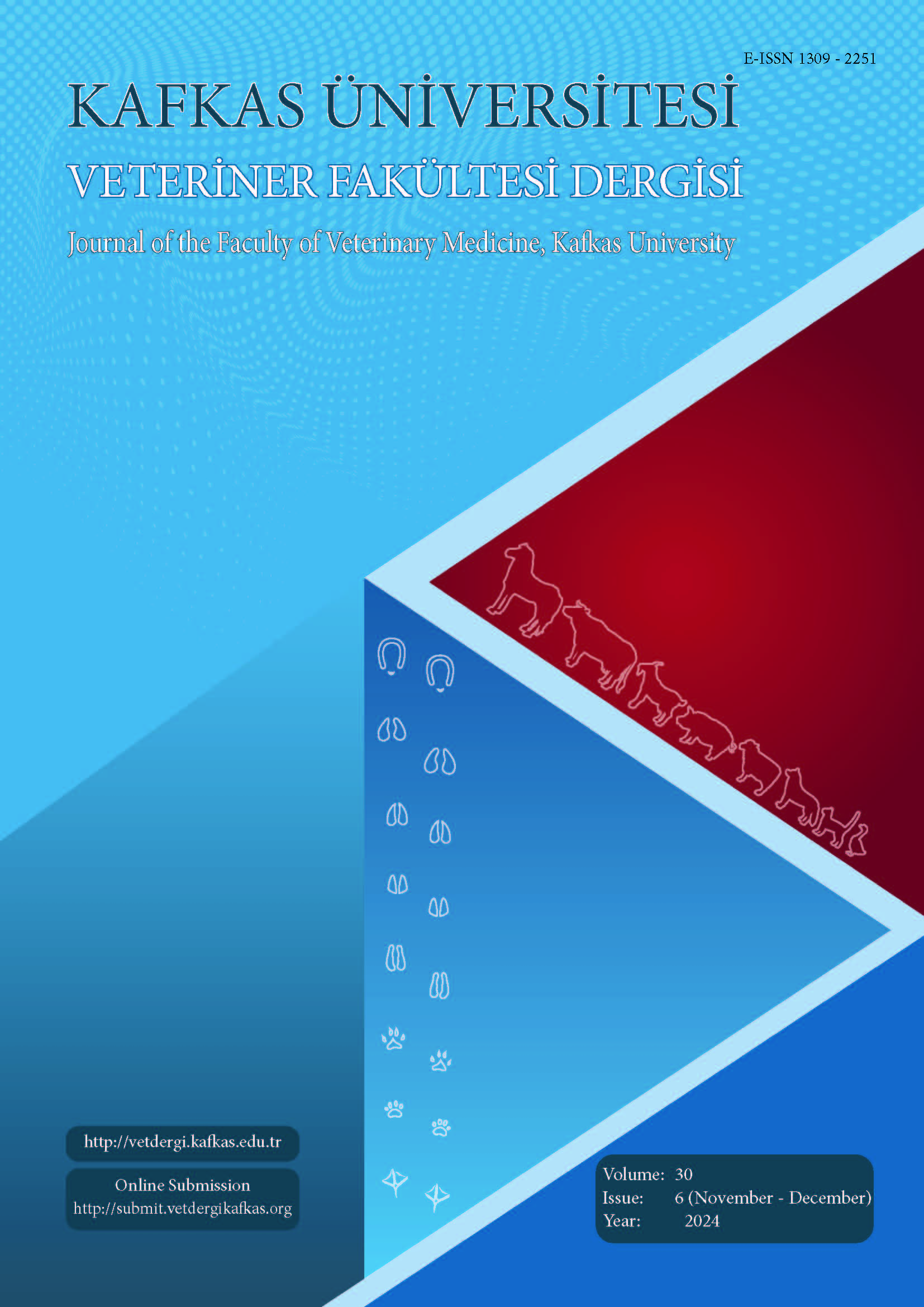
This journal is licensed under a Creative Commons Attribution-NonCommercial 4.0 International License
Kafkas Üniversitesi Veteriner Fakültesi Dergisi
2024 , Vol 30 , Issue 6
lncRNA NONRATT021477.2 Interference Aggravates H2O2-Induced Oxidative Stress in BRL Cells
1College of Animal Science and Veterinary Medicine, Heilongjiang Bayi Agricultural University, Daqing, Heilongjiang, 163319, CHINA
DOI :
10.9775/kvfd.2024.32247
Long non-coding RNA (lncRNA) plays important biological regulatory functions at
different levels. lncRNA NONRATT021477.2 (lncRNA77.2) was identified as a key
gene under cold stress conditions in rats. From the literature, lncRNA77.2 may have
important roles during antioxidant, but this conjecture requires investigation. To address
this knowledge gap, we investigated the effects of lncRNA77.2 interference on H2O2-
induced oxidative stress in rat liver cells (Buffalo rat liver, BRL).In the current study,
H2O2 treatment simulated BRL cell oxidative stress. H2O2 treatment led to a significant
increase in oxidative stress levels in BRL cells, whereas the gene expression levels of
antioxidase and lncRNA 77.2 and cell viability were significantly reduced. Additionally,
the expression of Nrf2 and Keap1 proteins decreased significantly compared to the
control group. BRL cells were transfected with antisense oligonucleotides (ASO) or
a negative control ASO (ASO-NC) and then treated with H2O2. The results showed
lncRNA77.2 interference increased oxidative stress levels, reduced gene expression
of antioxidant enzymes, Nrf2 and Keap1 expression levels. The results indicated that
lncRNA77.2 interference aggravated H2O2-induced oxidative stress in BRL cells, which
suggested that lncRNA77.2 is an antioxidant factor that plays an important role in the
regulation of oxidative stress in BRL cells.
Keywords :
BRL cells, lncRNA, Oxidative stress











